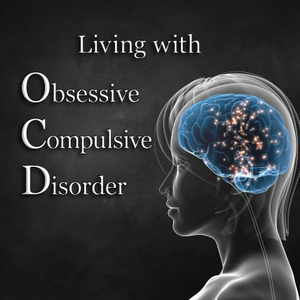The Yale-Brown Obsessive Compulsive Scale (Y-BOCS) is yet another of those quick self-tests to see if you have OCD.
While I’m not medically trained, I do have OCD, so I see myself as a good subject for these types of tests. If the test matches my diagnosis, maybe it can shed some light on what’s going on in your head, too.
Mood music:
[spotify:track:4PSnQLK4uSmFfuZYEcXNUp]
The scale rates the magnitude of symptoms in OCD patients based on a series of multiple-choice questions. Half the questions focus on obsessions and the other half on compulsions. Here’s how the site defines the two:
Obsessions are unwelcome and distressing ideas, thoughts, images or impulses that repeatedly enter your mind. They may seem to occur against your will. They may be repugnant to you, you may are often senseless, and they may not fit your personality. For example, the recurrent thought or impulse to do harm to your children, even though you never would.
Compulsions are behaviors or acts that you feel driven to perform, even though you may recognize them as senseless or excessive. At times, you may try to resist doing them, but this may prove difficult. You may experience anxiety that does not diminish until the behavior is completed.
From personal experience, I’d say those are accurate descriptions.
Here are some of the questions:
- How much do your obsessive thoughts interfere with functioning in your social, work, or other roles?
- How much distress do your obsessive thoughts cause you?
- How anxious would you become if you were prevented from performing your complusive behaviors?
- How much control do you have over the compulsions?
The higher you score, the more of a basket case you are. I scored 17 out of a possible 40. The number was lower than I expected, but it makes sense. At just below 20, I’m less than half of a full basket case.
Were the questions valid? I’d say so. The test is set up to measure the degree in which obsessive or compulsive behavior has control over the person. It gives you a good sense of whether you have mild OCD, which I define as OCD the sufferer is able to manage and even make use of, or the severe variety that destroys your ability to get through the normal challenges of a day.
On the surface, my score tells me that the OCD is there, but I’ve learned to control it and keep the symptoms to a manageable level. I say on the surface because I answered the questions as honestly as I could, but I realize that some of my answers could be off. I took it during a moment of calm. Had I taken it in a more agitated or depressed state, the score probably would have been higher. Overall, though, I found it to be a handy measuring stick, better than some of the others I’ve taken.
So what should you do if you got a high score? As the site’s disclaimer notes, the people behind the site are not medical professionals and your score is not a medical diagnosis. But if you’ve been wondering if you have OCD and your score on this test makes you wonder all the more, a good next step is talking to a medical professional about your concerns. Start with your primary care physician or a licensed counselor.
You can also check out more online resources for OCD on our Help for Obsessive-Compulsive Disorder page.


Great read! Apparently, I am six points closer to a full basket case. That does seem to put things into a perspective that you can see in black and white. I also think about what a person may score in the midst of depression with OCD as opposed to someone who suffers from OCD alone.